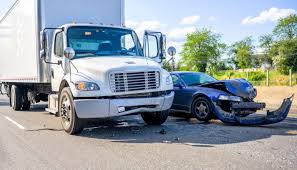Being involved in a truck accident in Atlanta can be one of the most overwhelming experiences of your life. The sheer size and weight of commercial trucks mean that when accidents occur, the consequences are often severe, leaving victims with catastrophic injuries, mounting medical bills, and uncertain futures. Unlike typical car accidents, truck accidents involve complex legal considerations including federal regulations, multiple potentially liable parties, and insurance companies with teams of lawyers ready to minimize payouts.
If you or a loved one has been involved in a truck accident in Atlanta, understanding the critical legal steps to take immediately following the incident can make the difference between receiving fair compensation and being left to handle devastating expenses on your own. The decisions you make in the hours and days following a truck accident will significantly impact your ability to recover damages and protect your rights. This comprehensive guide will walk you through the essential legal steps every truck accident victim should take to safeguard their interests and build a strong foundation for their case.
Immediate Safety and Documentation Steps
Your first priority after a truck accident should always be ensuring everyone’s safety and seeking immediate medical attention. Even if you feel fine initially, the adrenaline from the accident can mask serious injuries that may not become apparent for hours or days. Call 911 immediately to report the accident and request emergency medical services and police response.
While waiting for help to arrive, if you’re physically able and it’s safe to do so, begin documenting the scene. Take photographs of all vehicles involved, the surrounding area, traffic signs, road conditions, and any visible injuries. These images will serve as crucial evidence later in your case. Also, gather contact information from all parties involved, including names, phone numbers, insurance information, and driver’s license numbers.
The truck driver’s commercial driver’s license (CDL) information is particularly important, as it may reveal violations or restrictions that could be relevant to your case. If there are witnesses present, obtain their contact information as well, as their testimony could prove invaluable in establishing fault and the circumstances surrounding the accident.
Understanding Georgia’s Truck Accident Laws
Georgia operates under a modified comparative negligence system, which means that as long as you’re less than 50% at fault for the accident, you can recover damages. However, your compensation will be reduced by your percentage of fault. This makes it crucial to establish the truck driver’s or trucking company’s liability as clearly as possible.
Commercial trucks in Georgia must comply with both state and federal regulations, including hours of service rules, weight restrictions, and maintenance requirements. Violations of these regulations can serve as evidence of negligence in your case. For instance, if the truck driver was operating beyond the federally mandated driving hours, this could establish liability even if other factors contributed to the accident.
Georgia also has specific statutes of limitations for personal injury claims. You typically have two years from the date of the accident to file a lawsuit, though certain circumstances can affect this timeline. Acting quickly is essential not only to preserve evidence but also to ensure you don’t forfeit your right to seek compensation.
The Critical Importance of Police Reports
One of the most crucial pieces of evidence in any truck accident case is the official police report. When officers respond to the scene, they document their observations, interview witnesses, and often make preliminary determinations about fault. This report becomes a foundational document for insurance claims and potential litigation.
The responding officers will document important details such as weather conditions, road conditions, apparent violations of traffic laws, and any citations issued. They may also note if the truck driver appeared impaired, fatigued, or distracted. These observations can be critical in establishing negligence and liability.
If you believe the police report contains inaccuracies or doesn’t fully capture what happened, you have the right to request amendments or add supplemental information. Working with an experienced attorney can help ensure that all relevant information is properly documented and that any errors in the report are addressed. Understanding why you need a police report after a car accident can help you appreciate the importance of this documentation in building your case.
Dealing with Insurance Companies Strategically
After a truck accident, you’ll likely be contacted by multiple insurance companies – your own insurer, the truck driver’s insurance company, and possibly the trucking company’s insurer. It’s important to understand that insurance adjusters, while they may seem helpful and concerned, are primarily focused on minimizing their company’s financial exposure.
When speaking with insurance representatives, stick to basic facts about the accident and avoid speculating about fault or the extent of your injuries. Never provide recorded statements without consulting with an attorney first, as these statements can be used against you later. Be particularly cautious about accepting quick settlement offers, as they’re often far below what your claim is actually worth.
Commercial trucking insurance policies typically carry much higher coverage limits than standard auto insurance – often $1 million or more. However, accessing these funds requires navigating complex policy language and proving liability against defendants who have significant resources to fight claims.
Medical Documentation and Treatment Priorities
Comprehensive medical documentation is essential for both your health and your legal case. Even if you don’t feel seriously injured immediately after the accident, see a doctor as soon as possible. Some injuries, particularly soft tissue injuries, concussions, and internal injuries, may not manifest symptoms right away.
Follow all of your doctor’s recommendations for treatment and attend all scheduled appointments. Gaps in treatment can be used by insurance companies to argue that your injuries weren’t as serious as claimed. Keep detailed records of all medical appointments, treatments, medications, and how your injuries affect your daily activities.
Consider the long-term implications of your injuries as well. What might seem like a minor injury initially could develop into chronic pain or require ongoing treatment. Your medical providers can help document not only your current condition but also provide opinions about future medical needs and limitations.
Building Your Legal Case with Professional Help
Truck accident cases are significantly more complex than typical car accident claims. They often involve multiple defendants, including the truck driver, trucking company, vehicle manufacturer, cargo loading company, and maintenance providers. Each of these parties may have different insurance coverage and legal defenses.
An experienced Atlanta truck accident lawyer Cambre & Associates can help you navigate the unique legal challenges these cases present. Their team understands the intricacies of truck accident litigation and is skilled at identifying all potentially liable parties, uncovering critical evidence, and maximizing your compensation. With deep knowledge of federal regulations and commercial insurance practices, they know how to counter the sophisticated legal strategies used by trucking companies.
Professional legal representation becomes even more critical when dealing with serious injuries or wrongful death claims. In cases where a truck accident results in fatal injuries, families face not only overwhelming grief but also complex legal challenges in seeking justice after a wrongful death in a car accident. These cases require immediate action to preserve evidence and protect the family’s rights.
Understanding Potential Compensation
Truck accident victims may be entitled to various types of compensation, depending on the circumstances of their case and the extent of their damages. Economic damages typically include medical expenses, lost wages, reduced earning capacity, and property damage. These damages are generally easier to calculate as they have specific dollar amounts attached to them.
Non-economic damages compensate for pain and suffering, emotional distress, loss of enjoyment of life, and other subjective harms. In Georgia, there’s no cap on non-economic damages in most personal injury cases, which means that severe injuries can result in substantial compensation.
In cases involving particularly egregious conduct, such as a truck driver operating while intoxicated or a trucking company knowingly allowing unsafe vehicles on the road, punitive damages may also be available. These damages are designed to punish the wrongdoer and deter similar conduct in the future.
Frequently Asked Questions
How long do I have to file a truck accident lawsuit in Georgia?
In Georgia, you typically have two years from the date of the truck accident to file a personal injury lawsuit. However, certain circumstances can affect this timeline, such as when the injury wasn’t immediately discoverable or when government entities are involved. It’s crucial to consult with an attorney as soon as possible to ensure you don’t miss any critical deadlines, as failing to file within the statute of limitations can result in losing your right to seek compensation entirely.
What if the truck driver doesn’t have adequate insurance coverage?
Commercial trucks are required to carry much higher insurance coverage than regular vehicles, but sometimes even these amounts aren’t sufficient to cover catastrophic injuries. In such cases, your own underinsured motorist coverage may provide additional compensation. Additionally, there may be multiple liable parties beyond just the truck driver, including the trucking company, cargo loaders, or vehicle manufacturers, each with their own insurance coverage that could contribute to your recovery.
Can I still recover compensation if I was partially at fault for the accident?
Yes, under Georgia’s modified comparative negligence law, you can recover damages as long as you’re less than 50% at fault for the accident. However, your compensation will be reduced by your percentage of fault. For example, if you’re found to be 20% at fault and your damages total $100,000, you would recover $80,000. This makes it crucial to work with an attorney who can help minimize your assigned fault percentage and maximize your recovery.
What types of evidence are most important in truck accident cases?
Key evidence includes the police report, photographs of the scene and vehicles, witness statements, the truck driver’s logbooks and electronic logging device data, the trucking company’s maintenance records, and medical documentation of your injuries. Federal regulations require trucking companies to maintain extensive records, and your attorney can help obtain these through legal discovery processes. Time is critical, as some evidence may be destroyed or lost if not preserved quickly.
How are truck accident cases different from regular car accident cases?
Truck accident cases are significantly more complex due to federal regulations governing the trucking industry, multiple potentially liable parties, higher insurance coverage amounts, and typically more severe injuries. Trucking companies often have experienced legal teams and accident response teams that arrive at crash scenes quickly to protect their interests. The investigation process is more extensive, often requiring accident reconstruction experts, trucking industry experts, and detailed analysis of electronic data from the truck’s systems.
Why Legal Guidance Matters After a Truck Accident
Taking the right legal steps after a truck accident in Atlanta is crucial for protecting your rights and securing the compensation you deserve. From ensuring proper documentation at the scene to understanding Georgia’s complex trucking regulations and building a strong case with professional legal help, each step plays a vital role in your recovery. Remember that trucking companies and their insurers have experienced teams working to minimize their liability from the moment an accident occurs. Don’t face this challenge alone – seek experienced legal representation to level the playing field and ensure your interests are properly protected throughout the legal process.
About Cambre & Associates
Cambre & Associates specializes in personal injury law with extensive experience representing truck accident victims throughout Atlanta and Georgia. Our legal team understands the complex federal regulations governing the trucking industry, the tactics used by commercial insurance companies, and the unique challenges faced by those injured in truck accidents. We provide comprehensive legal services including accident investigation, expert witness coordination, medical documentation review, and aggressive representation in negotiations and litigation.
Our attorneys have successfully handled cases involving tractor-trailer accidents, delivery truck collisions, and commercial vehicle incidents, securing substantial settlements and verdicts for our clients. We work closely with accident reconstruction specialists, trucking industry experts, and medical professionals to build compelling cases that demonstrate liability and fully document our clients’ damages. Our team combines deep knowledge of trucking regulations with proven litigation skills to achieve optimal outcomes for truck accident victims.
Contact Cambre & Associates today to discuss how our truck accident expertise can help you navigate the complex legal challenges following your collision. Schedule a consultation to learn more about our comprehensive approach to truck accident cases and how we’ve helped clients recover millions in compensation for their injuries, medical expenses, and other damages.
Business Name: Cambre & Associates Injury & Accident Lawyers
Address: 2310 Parklake Dr NE Suite 300, Atlanta, GA 30345
Phone number: (770) 502-6116







